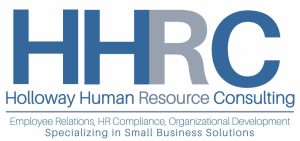Last week marked the first time in over 20 years the Equal Employment Opportunity Commission (EEOC) revisited its rules on the use of criminal background checks by employers.
On April 25, 2012 the EEOC published enforcement guidance explaining, among other things, that an employer policy or practice that automatically excludes every candidate with a criminal record from employment without consideration as to the job-relatedness and business necessity violates Title VII of the Civil Rights Act of 1964, as amended.
The EEOC’s reasoning is that such broad, all-inclusive policies have been found to have a disparate impact on minorities.
Going forward
The EEOC believes employers making hiring decisions on applicants with criminal records will consistently meet the “job related and consistent with business necessity” defense by considering three “green” factors:
- The nature and gravity of the offense or conduct
- The time that has passed since the offense or conduct and/or completion of the sentence, and
- The nature of the specific position.
The guidance goes on to state that while Title VII does “not necessarily” require individualized assessment in all circumstances…
“the use of individualized assessments can help employers avoid Title VII liability by allowing them to consider more complete information on individual applicants or employees, as part of a policy that is job related and consistent with business necessity.”
An individual assessment of applicants with criminal records should consider:
- The facts or circumstances surrounding the offense or conduct
- The number of offenses for which the individual was convicted
- Age at the time of conviction, or release from prison
- Evidence that the individual performed the same type of work, post-conviction, with the same or a different employer, with no known incidents of criminal conduct
- The length and consistency of employment history before and after the offense or conduct
- Rehabilitation efforts (such as education or training)
- Employment or character references and any other information regarding fitness for the particular position, and
- Whether the individual is bonded under a federal, state, or local bonding program.
Best practices
The agency has provided a list of “best practices” for employers who are considering criminal record information when making employment decisions:
- Eliminate policies or practices that broadly exclude people from employment based on any criminal record.
- Train managers, hiring officials, and decision makers about the federal prohibition on employment discrimination.
- Develop a narrowly tailored written policy and procedure for screening applicants and employees for criminal conduct.
- Identify essential job requirements and the actual circumstances under which the jobs are performed.
- Determine the specific offenses that may demonstrate unfitness for performing such jobs.
- Identify the criminal offenses based on all available evidence.
- Determine the duration of exclusions for criminal conduct based on all available evidence.
- Include an individualized assessment.
- Record the justification for the policy and procedures.
- Note and keep a record of consultations and research considered in crafting the policy and procedures.
- Train managers, hiring officials, and decision makers on how to implement the policy and procedures consistent with the law.
- When asking questions about criminal records, limit inquiries to records for which exclusion would be job related for the position in question and consistent with business necessity.
- Keep information about applicants’ and employees’ criminal records confidential. Only use it for the purpose for which it was intended.
And if the applicant doesn’t cooperate with your request for information? The guidance states:
“If the individual does not respond to the employer’s attempt to gather additional information about his background, the employer may make its employment decision without the information.”
One point to note: These new regulations do not address credit checks, which Oregon, California and other states have, directly.
This is a lot of information to absorb and the information provided here is an overview. You can read more about the new guidance by following the links below.
The EEOC has posted a Q & A on its website, here.
The EEOC Enforcement Guidance can be reviewed on their website:
http://www.eeoc.gov/laws/guidance/arrest_conviction.cfm
A 52 page PDF version of the EEOC Enforcement Guidance is also available:
http://www.eeoc.gov/laws/guidance/upload/arrest_conviction.pdf
My advice: Don’t guess with regulations. If you have any questions about how your employment policies, application and employment screening processes may be impacted this new enforcement guidance, call or email me.

